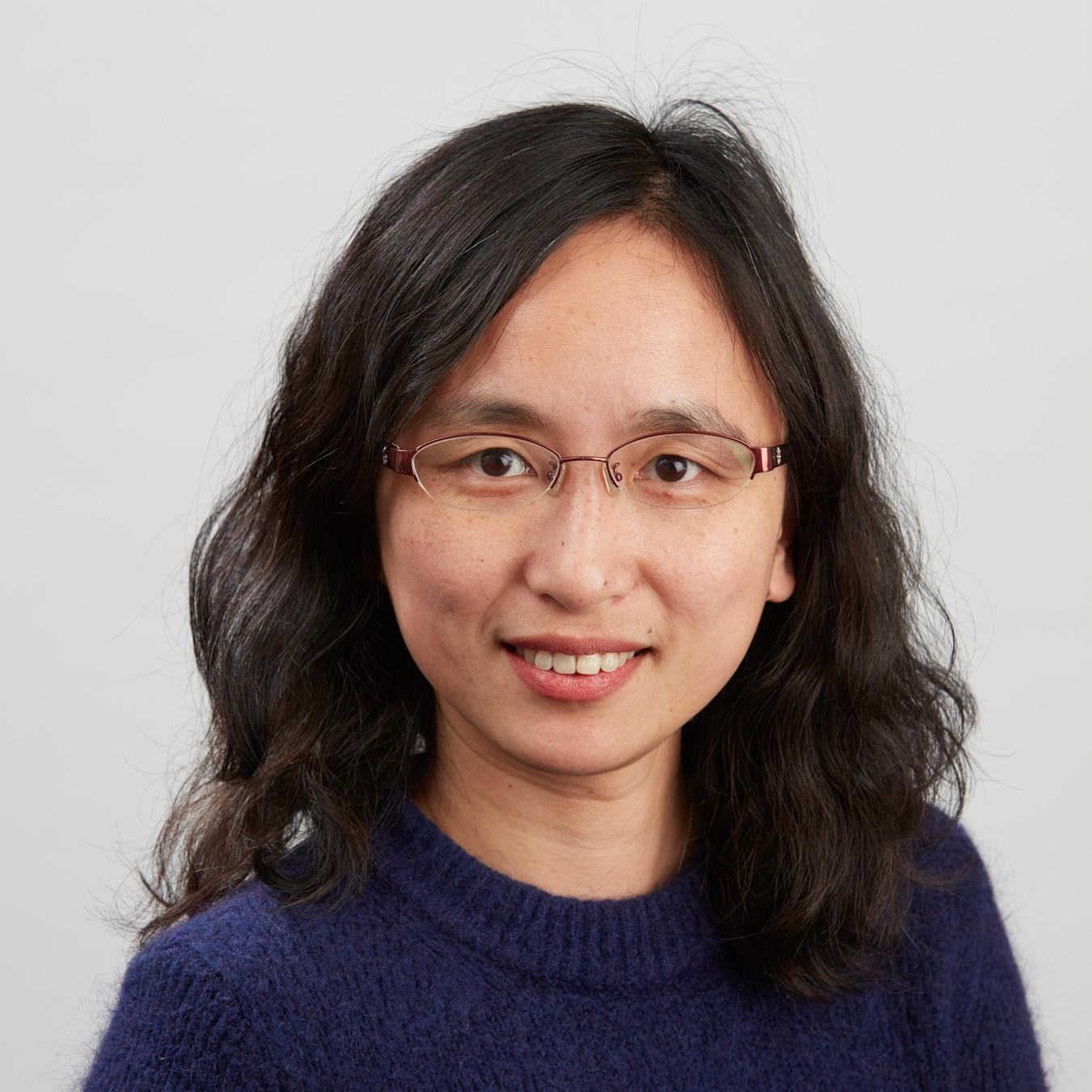Staff profile

| Affiliation | Telephone |
|---|---|
| Associate Professor in the School of Education | +44 (0) 191 33 44367 |
Biography
Yuqian (Linda) is an Associate Professor in the School of Education with specialist expertise in mathematics education. She brings extensive practical teaching experience, having taught mathematics at secondary level for over ten years in Shanghai, China followed by her PhD and further secondary mathematics teaching in the UK prior to her appointments as university lecturer. Linda's international perspectives have shaped her research focus on curriculum design for both secondary and upper primary mathematics, with particular emphasis on integrating East-West pedagogical approaches grounded in variation theory and mathematics mastery principles.
Linda's scholarly portfolio includes her three-year Fusion Maths research project, completed in 2021, which successfully pioneered innovative curriculum design adopted by international schools at St Bees in Cumbria. Linda's signature work on effective lesson planning, with particular focus on mathematical reasoning through the Causal Connectivity Framework (CCF), is explicated in her 2024 publication "Developing Maths Lesson Planning and Frameworks: Mastery, Logic and Reasoning in the Classroom" (Open University Press, ISBN: 9780335251803). Currently, Linda's research involves investigating the application of comparative judgement as a dynamic pedagogical tool in teacher education, examining how this method can enhance dialogue-based assessment practices.
Linda welcomes enquiries from prospective students interested in pursuing research, including in curriculum design, assessment, and pedagogical approaches in upper primary and secondary mathematics.
Research interests
- Mathematics Education
- Pedagogy and Curriculum
- Comparative Study
Publications
Authored book
- Developing Maths Lesson Planning and Frameworks: Mastery, Logic and Reasoning in the ClassroomWang, Y., Dawson, J., & Brown, C. (2024). Developing Maths Lesson Planning and Frameworks: Mastery, Logic and Reasoning in the Classroom. Open University Press.
Conference Paper
- Making Sense of Mathematics Mastery: A comparative judgement approach towards pre-service teachers' understandingHeshmati, H., Wang, L., & Barmby, P. (2024). Making Sense of Mathematics Mastery: A comparative judgement approach towards pre-service teachers’ understanding. Proceedings of the British Society for Research into Learning Mathematics, 44(3), 44-47.
Journal Article
- Getting the Right Mix Between Research and Teaching: A Cross‐National Study of University Teachers' Perspectives and Practices in Teacher Education and Education StudiesArnau-Sabatés, L., Ion, G., Wang, L., & Kowalczuk-Walędziak, M. (2025). Getting the Right Mix Between Research and Teaching: A Cross‐National Study of University Teachers’ Perspectives and Practices in Teacher Education and Education Studies. Higher Education Quarterly, 79(2), e70019. https://doi.org/10.1111/hequ.70019
- How Initial Teacher Training programmes integrate research: A case study of insights from module expectations and teacher educators’ implementationWang, Y., & Newton, D. P. (2024). How Initial Teacher Training programmes integrate research: A case study of insights from module expectations and teacher educators’ implementation. Teacher Education Advancement Network Journal. Advance online publication.
- Reviving the Forgotten Scholarly Discipline of Commonplacing to Enhance Teaching & Learning in Higher EducationHirst, J., & Wang, Y. (2024). Reviving the Forgotten Scholarly Discipline of Commonplacing to Enhance Teaching & Learning in Higher Education. Enhancing Teaching and Learning in Higher Education, 2, 4-15. https://doi.org/10.62512/etlhe.12
- Approaches to curriculum integration in English primary schools: through the eyes of an American TeacherBrant, S., & Wang, Y. (2024). Approaches to curriculum integration in English primary schools: through the eyes of an American Teacher. Research Journal: International Education Theory and Practice, 10, 83-96.
- What do we know so far about the research-teaching nexus in Initial Teacher Training?Wang, Y., Newton, D., Moger, P., Ion, G., & Armau-Sabates, L. (2023). What do we know so far about the research-teaching nexus in Initial Teacher Training? Review of Education, 11(2), Article e3405. https://doi.org/10.1002/rev3.3405
- Making sense of ‘mastery’: Understandings of a policy term among a sample of teachers in EnglandSimpson, A., & Wang, Y. (2023). Making sense of ‘mastery’: Understandings of a policy term among a sample of teachers in England. International Journal of Science and Mathematics Education, 21(2), 581-600. https://doi.org/10.1007/s10763-021-10178-x
- Improving mathematical reasoning – the professional development challengeWang, Y., & Brown, C. (2022). Improving mathematical reasoning – the professional development challenge. Professional Development Today., 22(4).
- ‘Allowing them to dream’: fostering creativity in mathematics undergraduatesNewton, D., Wang, Y., & Newton, L. (2022). ‘Allowing them to dream’: fostering creativity in mathematics undergraduates. Journal of Further and Higher Education, 46(10), 1334-1346. https://doi.org/10.1080/0309877x.2022.2075719
- Design and feedback for a sequence of lessons in geometry and numeracy using the Causal Connectivity FrameworkDawson, J., Wang, Y. (Linda), & Truscott, W. (2021). Design and feedback for a sequence of lessons in geometry and numeracy using the Causal Connectivity Framework. Primary Mathematics., 25(2), 6-10.
- Nurturing mathematical literacy at lower primary level: impacts on student understanding of formal mathematical conceptsWang, Y., Truscott, W., & Dawson, J. (2021). Nurturing mathematical literacy at lower primary level: impacts on student understanding of formal mathematical concepts. Research Journal: International Education Theory and Practice, 7, 58-68.
- Sharing learning from Shanghai on school reopening under Covid-19Wang, Y. (2020). Sharing learning from Shanghai on school reopening under Covid-19. Mathematics Teaching, 272, 10-11.
- How can we nurture creative thinking? Designing a revision lesson in geometryDawson, J., & Wang, Y. (2020). How can we nurture creative thinking? Designing a revision lesson in geometry. Mathematics Teaching, 270, 20-23.
- How does a mastery lesson unfold?Dawson, J., & Wang, Y. (2019). How does a mastery lesson unfold? Mathematics Teaching, MT267, 11-14.
- In which ways and to what extent do English and Shanghai Students Understand Linear Function'Wang, Y., Barmby, P., & Bolden, D. (2017). In which ways and to what extent do English and Shanghai Students Understand Linear Function’. Research in Mathematics Education, 19(1), 66-90. https://doi.org/10.1080/14794802.2017.1287001
- Understanding Linear Function: A Comparison of Selected Textbooks from England and ShanghaiWang, Y., Barmby, P., & Bolden, D. (2017). Understanding Linear Function: A Comparison of Selected Textbooks from England and Shanghai. International Journal of Science and Mathematics Education, 15(1), 131-153. https://doi.org/10.1007/s10763-015-9674-x
Report
- EasyPeasy: Learning through play. Evaluation ReportRobinson-Smith, L., Menzies, V., Cramman, H., Wang, Y. (Linda), Fairhurst, C., Hallett, S., Beckmann, N., Merrell, C., Torgerson, C., Stothard, S., & Siddiqui, N. (2019). EasyPeasy: Learning through play. Evaluation Report.

